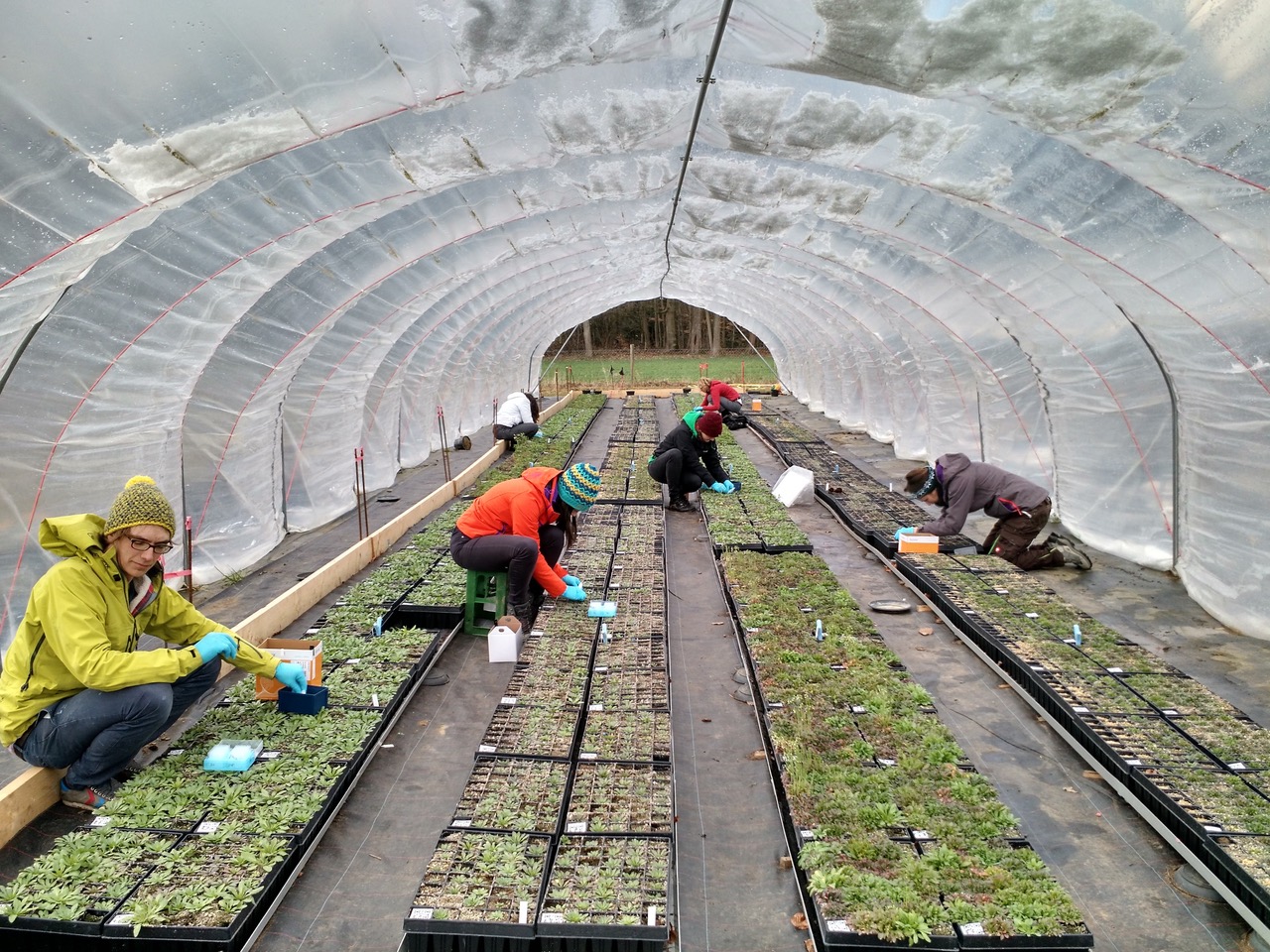News
29.08.2019
Global warming may diminish plant genetic diversity in Europe
Plant genetic diversity in Central Europe could collapse due to temperature extremes and drought brought on by climate change. According to a new paper published in Nature, only few genetic varieties of a species may have already adapted to extreme climate conditions. These findings suggest that the overall genetic diversity could be greatly diminished. The publication was led by Moises Exposito-Alonso from the Max Planck Institute (MPI) for Developmental Biology in Tübingen, now at Carnegie Institution for Science in Stanford.
An international team of researchers from the MPI for Developmental Biology, University of Tübingen, Technical University of Madrid, and UC Berkeley studied wild populations of the thale cress, Arabidopsis thaliana, collected from over 500 geographic locations in Europe. Growing these plants in a large experiment in Spain and Germany revealed how these 500 varieties responded to climate change.
The investigators were particularly interested in how their unique blends of genetic mutations enabled the different individuals of the same species to resist hotter and drier climates. Some of these mutations may confer physiological advantages, and the main goal of this study was to rank their fitness for future survival.
Mathematical models forecast shrink potential of European genetic diversity
This data was then combined with models predicting how temperatures and precipitation are expected to shift geographically in the next few decades in order to understand how plant genetic diversity will be affected by human-caused climate change in the future.
"On the basis of our calculations up to the year 2050, we can determine a significant change in the mutations that will be needed for the thale cress to survive in Southern to Central Europe,” first author Moises Exposito-Alonso said. “It is remarkable how much individuals from different parts of Europe differ in their ability to withstand future climate conditions,” added Detlef Weigel, Director at the MPI, where the work was coordinated.
Many of the continent's plant populations won't be able to survive
As precipitation decreases and temperatures rise, especially in so-called transition zones between the Mediterranean and Central Europe, the team’s predictions indicate that many of the continent’s plant populations will not possess the genetic mutations necessary to survive. These patterns might be shared across many other plant species in Europe. While genetic information for most species is still lacking, the rapid advance in modern genomic methods will allow researchers to obtain such information for more and more species in the future. With such information, it will be possible to improve predictions of where species are most at risk of suffering from the consequences of climate change.
This research was funded by the Max Planck Society and the European Research Council. Also participating in this study were Oliver Bossdorf from the University of Tübingen, Hernán Burbano, now at UCL London, Rasmus Nielsen from UC Berkeley, and a team of experimental researchers at the MPI for Developmental Biology and the Technical University of Madrid.
Publication:
Moises Exposito-Alonso, 500 Genomes Field Experiment Team, Hernán A. Burbano, Oliver Bossdorf, Rasmus Nielsen & Detlef Weigel: Natural selection on the Arabidopsis thaliana genome in present and future climates. Nature, doi.org/10.1038/s41586-019-1520-9
Contacts:
Carnegie Institution for Science at Stanford University
Moises Exposito-Alonso, Ph.D.
+1 510 225 5173
Mexpositoalonsospam prevention@carnegiescience.edu
Max Planck Institute for Developmental Biology
Prof. Dr. Detlef Weigel
+49 7071 601 1410
detlef.weigelspam prevention@tuebingen.mpg.de
Institute of Evolution & Ecology at University of Tübingen
Prof. Dr. Oliver Bossdorf
+49 7071 29-78809
oliver.bossdorfspam prevention@uni-tuebingen.de
Contact for press:
Eberhard Karls Universität Tübingen
Public Relations Department
Dr. Karl Guido Rijkhoek
Director
Janna Eberhardt
Research Reporter
Phone +49 7071 29-76753
Fax +49 7071 29-5566
janna.eberhardtspam prevention@uni-tuebingen.de
www.uni-tuebingen.de/en/university/news-and-publications
Back
